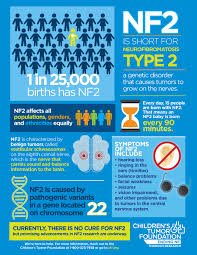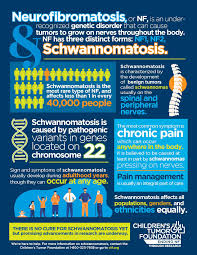My Life with Neurofibromatosis (Neuro-huh?)
- Shruti S
- Jul 21, 2024
- 3 min read
Updated: Nov 30, 2024
Yes, you read that last word right.
Neuro-fibro-matosis, shortened to NF for the sake of all of our tongues, is an often genetic neurological condition which causes tumor growth on different parts of the nervous system like the spine, brain, and nerves. There’s 3 different types of this condition, and I have the unique 1 in 40,000 experience of being diagnosed with NF2, which has inevitably changed the way I live my life in more ways than one—let’s talk about it.
Hello there, my name is Shruti and I’m so excited to welcome you to the NF Student Alliance’s

very first blog post!
In this post, I just wanted to set a lay of the land and explain the basis of this organization; NF, and my experiences having the condition, the latter of which led to the creation of the NFSA. Again, thanks for being here—it means the world to me that you’re even interested in reading about aspects of my identity that I never thought would be important to anyone but me and my doctors.
What is NF?
I know I’ve stated the literal definition of neurofibromatosis up above, but it’s important to dive a little deeper, especially when trying to raise awareness (that’s our goal here by the way).For starters, there’s three variations of this condition, NF1, NF2, and schwannomatosis (yes, I know, another big word, ugh, but we’ll get through this).
NF1, the most popular of the three, causes tumors to grow in the small nerves near the skin and in larger nerves inside the body. It is estimated that 1 in 2,500 individuals have NF1. Just like all the other types of neurofibromatosis, it has a 50% chance of being inherited by a child of someone with the condition. It’s also easily identifiable since tumors appear right under the skin and can be visible to the eye.
NF2, the type I have, is much more rare and involves the growth of benign tumors within the nerves, usually in the spine and brain. This variation of the disease appears in only 1 out of 25,000 to 1 in 40,000 individuals. The tumors themselves aren’t visible, but complications that arise from surgeries to remove these tumors can cause nerve damage resulting in muscle weakness, numbness, and other health issues.
The final type, schwannomatosis, sometimes also referred to as NF3, is extremely similar to NF2 in terms of symptoms but is much less likely to cause hearing loss than NF2. The main symptoms of scwannomatosis include small benign tumors and pain, which make it harder to diagnose--research about this variation of NF is still undergoing.
My Experiences with NF
Now that you know what NF is in general, I want to talk about how it has affected how I live my life. Before I say anything, though, I’d just like to mention the importance of humanizing people with rare diseases through their experiences; before you read this post, neurofibromatosis was probably just another big word to you, but by sharing my story, I hope to help you connect what you’ve learned with the life you live, and the people you live it with.

I’ll be honest—for the most part, I get to live the normal life of a 14 year old girl in high school (as if teenage years are normal for anyone), and NF2 doesn’t impact much of my daily life. Of course, there are annual check ups with more specialists than I care to count, semiannual MRIs, and surgeries—I’ve had 7 up till now—but I try not to let all that define me. What I often can’t shake, however, is the mental toll all that eventually takes. I live my day to day life, quite happily most of the time, but sometimes it's hard to cope with the loneliness of not knowing anyone else with NF, or the uncertainty of living with a currently untreatable chronic medical condition.
But at the end of the day, I guess I do come out stronger and more resilient for it, though sometimes I wish I didn’t have to be. If you were to take away only one thing from all this that I’ve said, I would ask you to understand that people with conditions like mine are still people, but we’re people who’ve seen and felt things we wished we didn’t have to. We are not who we are despite our experiences. We are who we are because of them.
I’d love to talk further about my experiences in the future and things like how I’ve coped with the not-so-easy side of having NF—let me know what more you’d like to know down below.
Live Boldly,
Shruti S.
Got Questions? Check out these resources:







YAYYYYY PIZA
Hey everyone! Let me know your thoughts below.